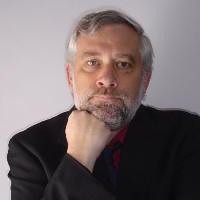Students should be active participants in the learning process. I believe in cooperative learning, in a process where students learn together. And I believe in participatory learning. Education, especially in the early grades, is not about knowledge - facts and figures, dates and names. It is about skills. Students learn the three R's mostly through exercising, practicing particular skills. You don't tell someone how to read. You introduce them to the process and allow them to practice it in ways that build strength in it.
 Teachers should be expert guides, not bosses or masters. The rigidity of the relationship and the formality of the two roles, student and teacher, will vary from subject area to subject area and from grade to grade. The idea that we can make generalizations about kindergarten classroom relationships that will still hold true in the tenth grade is probably a naive desire to oversimplify theory and philosophy.
Teachers should be expert guides, not bosses or masters. The rigidity of the relationship and the formality of the two roles, student and teacher, will vary from subject area to subject area and from grade to grade. The idea that we can make generalizations about kindergarten classroom relationships that will still hold true in the tenth grade is probably a naive desire to oversimplify theory and philosophy.If I must generalize about teaching situations in a subjunctive mode, I'd prefer a student-centered classroom where the teacher aids in the discovery process (not in construction of "reality," since reality is already here and is pretty real without the help of my students) and where the teacher acts as a coach in the development of skills. I'd prefer a classroom where the students felt as few restrictions as possible within the requirements of the learning process. And I'd prefer a classroom where learning, not teaching, was the central focus.
The higher the student-teacher ratio, the less like this a classroom becomes. And in my mind the single biggest factor in the quality of education and the success of the educational process is the most expensive factor - personnel. We can tinker with curriculum. We can alter pedagogy. We can think of new ways to measure success (and accountability). We can require that the one teacher we have (in a room where two are needed) be better trained. But the solution that is most likely to work is the solution that no one wants to pay for: more teachers per school.

